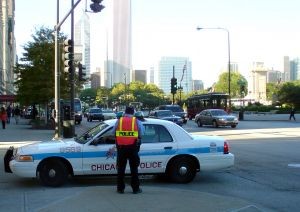 Determining whether you want to fight a traffic citation in court can become a confusing endeavor. There are certain instances in which fighting the violation may not seem like a good idea, because the probability of winning may not be that high. However, unless there is some type of negative consequence associated with losing your contest in the court of law, it is best to consult an experienced attorney and fight your ticket.
Determining whether you want to fight a traffic citation in court can become a confusing endeavor. There are certain instances in which fighting the violation may not seem like a good idea, because the probability of winning may not be that high. However, unless there is some type of negative consequence associated with losing your contest in the court of law, it is best to consult an experienced attorney and fight your ticket.
Something that might be considered a negative consequence is court fees that may be associated with the actual trial, but as a general rule, the penalty for the violation does not increase if you lose the trial.
When determining whether or not to fight your ticket, consider the below;
- If there is a good chance of winning the case, it is a good idea to have a lucid understanding of what you have been charged with.
- You must also study and understand how the law applies to the specific set of circumstance surrounding your citation.
- There are certain elements of appearing in court that have the capacity to affect your chances of winning; the most prevalent of which is the presence of the police officer who issued the citation.
Your Word Against Theirs
In many traffic cases, it will boil down to your version of what happened being in comparison to the version of the police officer.
- As a general rule, traffic court judges have a proclivity to give more gravity to the testimony of the police officer, meaning that without strong evidence to support your version of the story, it will be difficult to get a judge to rule in your favor. This does not mean that it is impossible; but it is rare.
- If there is something that seems out of place or questionable in the testimony of the police officer, then there is a chance that the judge will rule in your favor.
On the other hand, when the police officer fails to show up to court, the chance of you winning the case increases drastically. This is because;
- Firstly, most judges frown upon the failure of a police officer not showing up to court without an acceptable excuse.
- They see it as a certain level of disrespect for the process, and many times they will simply rule in favor of the defendant as a way of making a statement.
- Secondly, without the cop being present, there is no one there to oppose your direct recollection of the facts.
What To Do If the Cop Does Not Show Up
It is important to understand that there is more than one type of no-show when it comes to police officers not coming to court.
- There is the official notification, in which the police officer notifies the court that they will not make it in — normally offering some type of official explanation. In this instance, the judge will likely reschedule the case to give the officer a chance to make it.
- Conversely, if a cop simply does not show up, the aforementioned protocol will probably be followed by the judge.
If you arrive at the court, and you don’t see the officer that gave you your ticket, it is still wise to be prepared to present your case. If the judge decides to proceed in lieu of dismissing or rescheduling the case, you will need to be ready.
It helps to have taken the time prior to your court date to familiarize yourself with the laws that are applicable to your case, and also to determine how you are going to defend yourself against the charge. You might say that you did not do it, or that there were extenuating circumstances. Either way, you should be clear on your defense and prepared to carry it out.
[Image:http://www.freeimages.com/photo/384860]
Scott Desind
Latest posts by Scott Desind (see all)
- How to Request the County Seat and Fight Your California Traffic Ticket - May 21, 2023
- Don’t Even Touch That Cell Phone - July 13, 2022
- Innocent Until Proven Guilty - March 2, 2020

